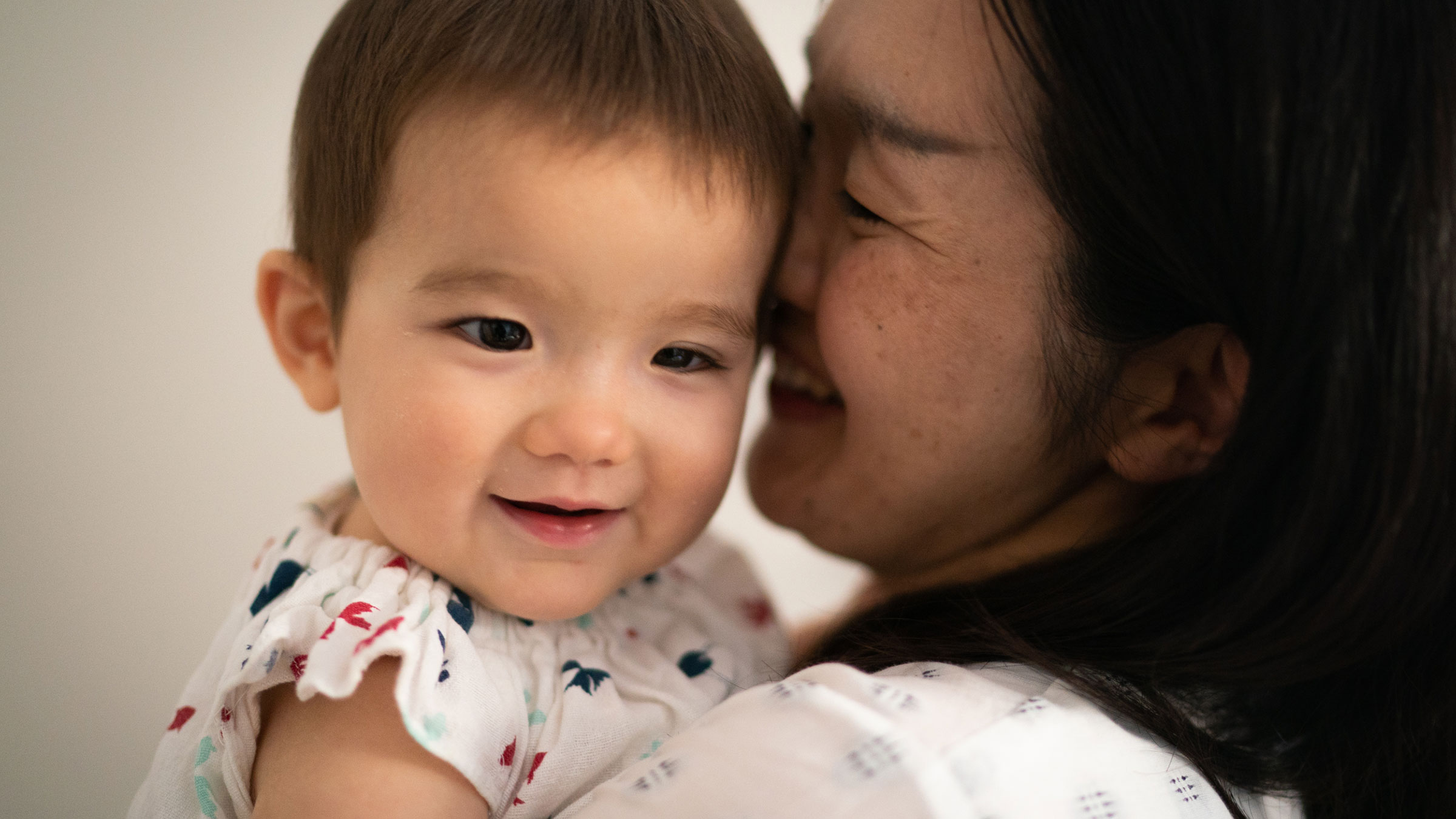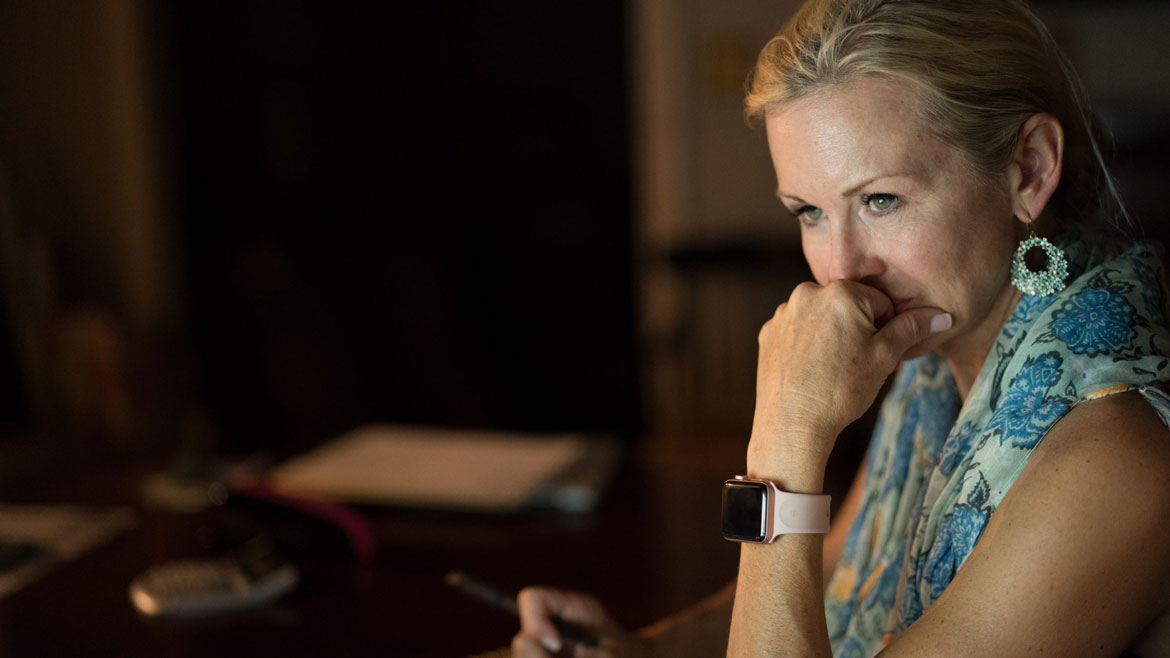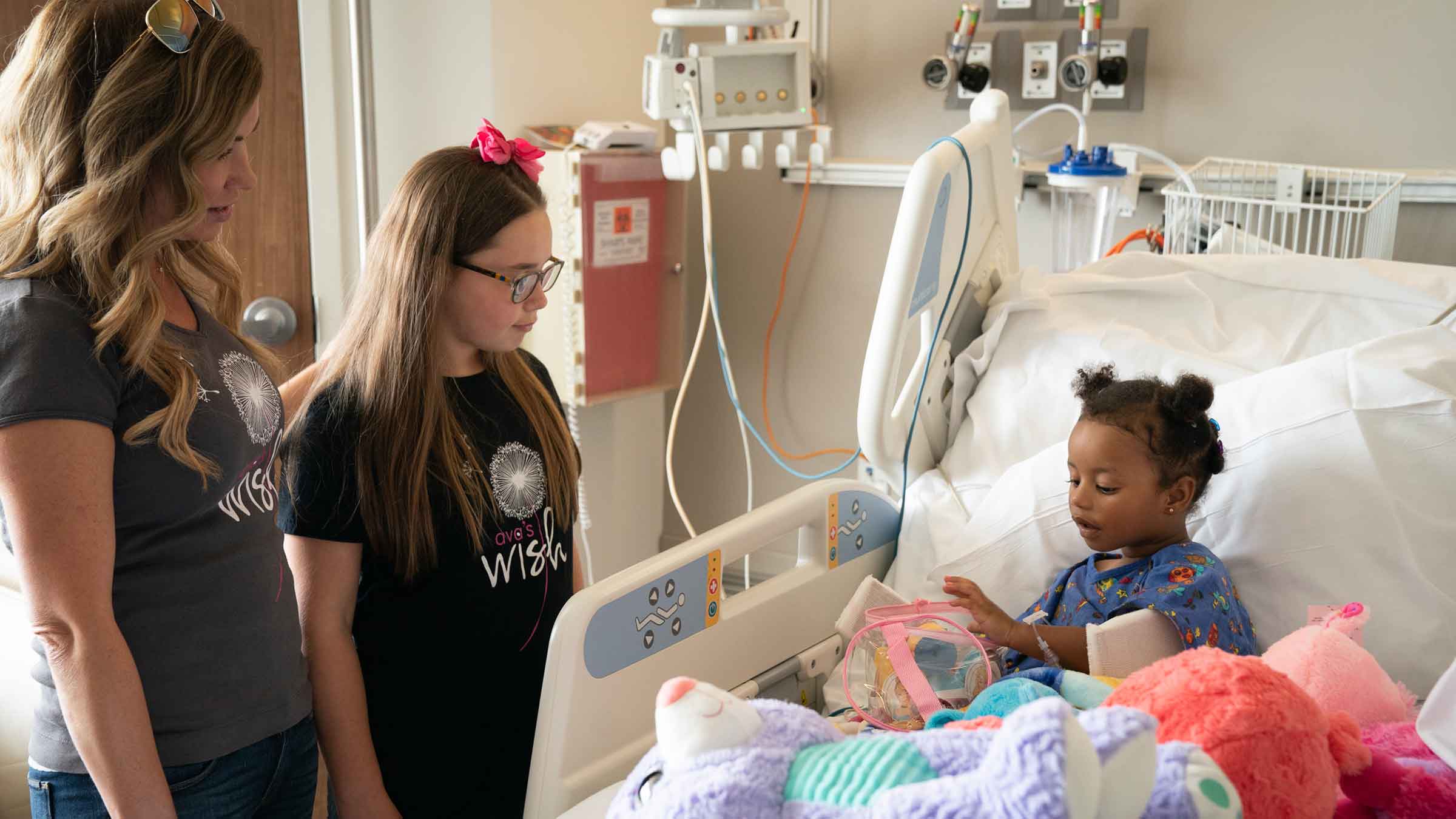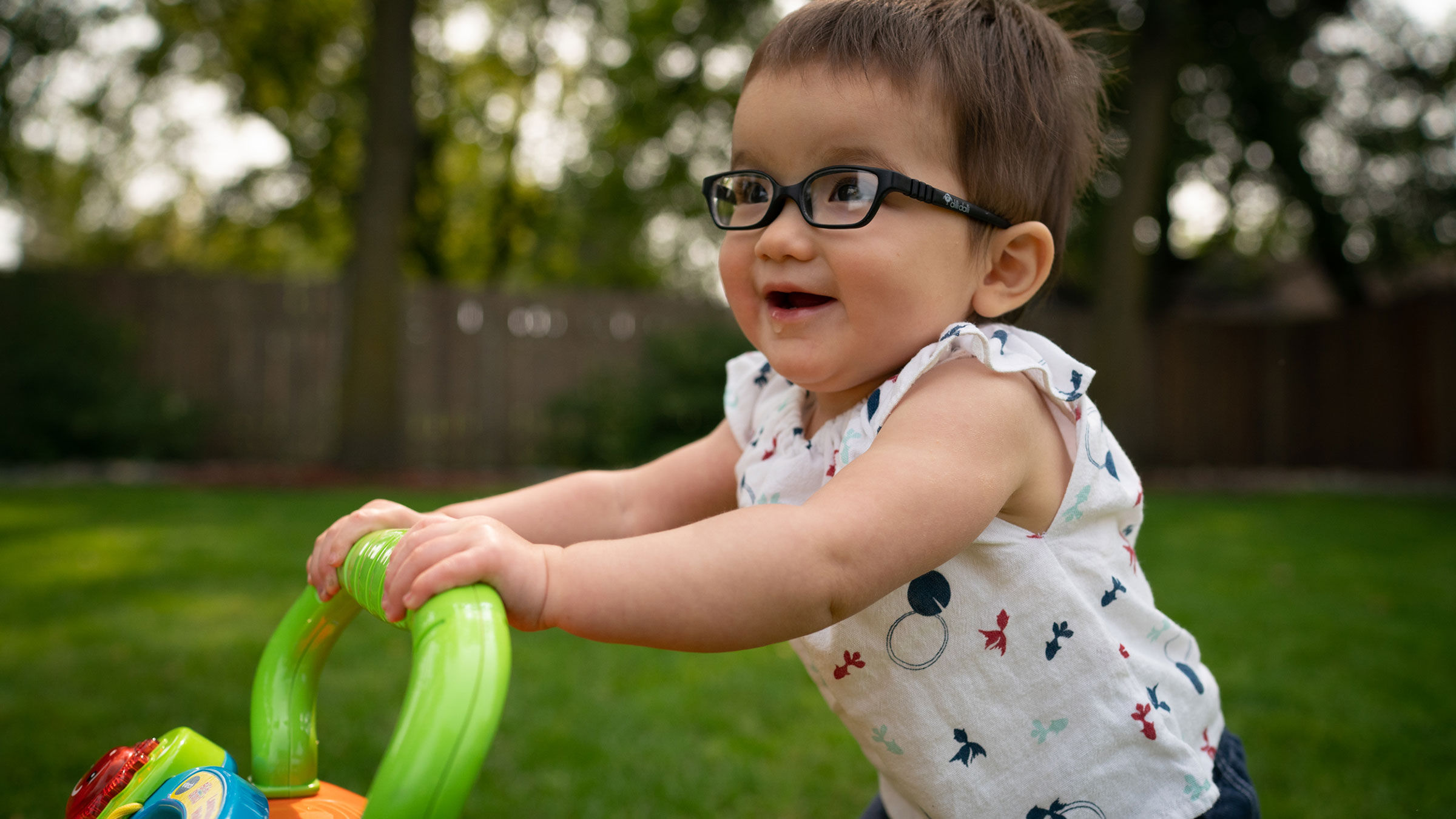How to Cope When Your Child is Diagnosed with Cancer

CaringBridge Staff | 11.10.20
Nothing can prepare you for the feeling of learning that your child has cancer. All these unfamiliar stresses and feelings can be so much to bear. However, there are ways to cope and deal with the emotions that both you and your child may be facing.
We share some tips for parents from parents who’ve been through it on how to cope with some of the stress and unfamiliar situations post-diagnosis:
1. Lean On Those Around You
Your support system is larger than you’d think, and they want to help you during your child’s health journey.
Don’t be shy to ask for what you need. Financial assistance, helping with meals or carpool, taking care of the pet or housework can all be areas of life that need extra hands during this time.
However, keeping track of all the people who want to help will likely be overwhelming. Designate a trusted friend or family member to coordinate what people can do, so you can keep your focus on your child.
Tip: A free CaringBridge online health journal allows you to update everyone at once, so all your loved ones know what’s happening in your child’s health journey. Loved ones can comment their support on your journal entries, and our on-site CaringBridge Planner lets you easily coordinate care needs.
Start a CaringBridge Site
When you’re going through a health journey, you have a lot on your plate. CaringBridge replaces the time-consuming task of sharing your health news over and over. It’s a free, easy to use online journal for sharing health information with your family and friends.
Don’t go through your health journey alone.
You can stay connected to friends and family, plan and coordinate meals, and experience love from any distance.
All of this is ready for you when you start your personal CaringBridge site, which is completely free of charge, ad-free, private and secure. Don’t spend another minute alone!
“Talk to other families and survivors. Read all you can. It helps. And know to ask for help.”
Deborah K.
“Support from everyone, family and friends, and even a stranger really makes a difference when your world is falling apart.”
Tina W.
2. Seek Out Specialists
In addition to your loved ones, your hospital’s social workers and child life specialists are experienced resources who can offer amazing support in this time.
They can teach you distraction techniques for getting your child through procedures and other aspects of treatment. They also work with your child’s siblings, help your family cope, and direct you on how much information to share with your child given his or her age.
3. Journal
You’re likely feeling overwhelmed or scared in this unfamiliar time. Keeping a journal can help you process these thoughts and feelings and keep you grounded.
Simply writing things down can have a positive effect – potentially resulting in less anxiety surrounding treatment or appointments, and helping you cope with what you and your child are experiencing.
4. Research, but Know When to Take a Break
For some, research can be a source of comfort. Reading about your child’s type of cancer can better prepare you for what to expect, understand the treatment prescribed by your medical team and help you ask the right questions when speaking to your child’s doctors.
It can also help you learn how your child’s cancer diagnosis might affect his or her life. Will they still be able to continue with their activities? Stay in school? What will their day to day look like?
Knowing common answers to these questions can help you plan for the future, and also to comfort your child should they ask you.
Gentle reminder: If you feel overwhelmed by the information, allow yourself to take a break. Journal, take a walk, or put on your favorite TV show. Choose an activity that allows you to escape the vortex of information, even if only for a while.
5. Speak to Parents with Similar Experiences
There is strength in community. Even if you feel as though you’re alone in this experience, there are people out there willing to talk you through this difficult time. Whether they’re parents of a child that has or had cancer, or even had cancer themselves, they can share their strength and guide you through what to expect in the cancer journey process.
If you don’t know anyone personally, your social workers can connect you with some other families in the area who have gone through a similar diagnosis. They can be an incredible support system and give you an idea of what to expect.
“Make friends with other parents on the ward and spend time with them while the children are asleep, rather than sitting alone with your thoughts. I did this 20 years ago and we are still friends to this day and one is my daughter’s Godmother. Doing your best to remain positive in front of your child also helps them cope, stops them getting stressed and upset if they see you are calm. My son knew there was a lump in his tummy and he needed special medicine to make it go away. That was all. We never told him he had cancer, never let him overhear conversations that he could die, and he coped so well with everything, even the really bad stuff, that’s where I drew my strength from. He laughed in the face of it all and that’s the best coping strategy I could have asked for.”
Lena W.
6. Get to Know Your Medical Team
Depending on the aggressiveness of the cancer and the type, your child may be in the hospital frequently following their diagnosis. Your medical team is there to support you through it all.
Your child’s doctors can refer you to classes or support groups for parents that have a child experiencing cancer, and will do their best to answer any questions you might have. If you are able to take your child home, ask them how best to care for them there.
Getting to know your care team will help you feel more comfortable and confident when asking questions about your child’s treatment or condition.
7. Keep a Health Binder
Making a health binder can help you keep information organized and assist in your discussion with doctors.
Being an active participant in your child’s treatment can help you hold your doctors accountable, and present yourself as a well-informed, honest and committed parent. This can encourage doctors, nurses, clinicians and others to be respectful of your judgment.
Your binder can also help you get familiar with how your child reacts to certain medications, what works the best, and what doesn’t work. Plus, having all of the information together in one spot may speed up appointments, which can create a better quality of life for you and your child.
8. Find a Ronald McDonald House
Ronald McDonald House is a place families can stay that provides all the comforts of home, plus the compassion and hospitality of staff, volunteers, and other families — all just steps away from the hospital. The program can help reduce the stress and financial burden for families when they must travel far from home to access medical care for their child.
9. Make a Hospital Stay More Comfortable
If your child will be hospitalized for some longer stretches, bring familiar items from home like fluffy pillows, cozy blankets and stuffed animals to make the stay more comfortable for your family. Some hospitals may let you hang things on the wall like drawings or cards. Little things like this can help.
See more ideas on what to pack for a hospital stay.
10. Take Care of Yourself as Best You Can
It might not seem like the right time, but taking care of yourself remains one of the most important things you can do. It’s harder to take care of your child and be present with their care when your health is not prioritized. Start simple, with activities like:
- Exercise – Pick a method you enjoy, whether it be yoga, biking or a long walk
- Eat well – Consume what makes your body and mind feel good
- Rest up – Try to get those 7-8 hours of ZZZs
- Read a book – Engage in an activity that helps your mind escape
- Deep breaths – Self-care can be as simple as taking a cleansing breath
If you’re looking for more ideas, here are 25 self-care tips for caregivers that may help. If you are a parent or caregiver to a child with cancer, CaringBridge invites you to join our public community on The Mighty to find support, connection and resources from those on a similar family cancer journey.
11. See a Counselor
The emotional toll of your child having cancer impacts your whole family, and you may experience deep emotions like grief and trauma.
Grief counseling can help your family work through big decisions about treatment and find healthy ways to cope with the pain of your child’s diagnosis. Prioritizing your family’s mental health can give you all resilience, and protect your marriage and other relationships through this time.
Tip: Health insurance may cover the costs of counseling, so check with your provider to see if your family is covered.
12. Accept the New Normal
Instead of focusing on getting back to the life you had, try to shift your focus on your “new normal.” Take time to mourn the loss, but then look to the present. A new person has emerged from this struggle, and it can help to find ways to bring that new person fulfillment. One way of doing this is by looking for little moments of joy and hope in yours and your child’s life.
“The bottom line is that set-backs will inevitably happen, but the response cannot be despair but instead recognize that there are challenges, but you have a lot of support and help available to you. Also, relish those good results and just remember to try and just ENJOY your time with your child and to do that you have to be able to let your mind relax for a while.”
Jon H.
What’s Your Story?
Have you or someone you know had a child that has been diagnosed with cancer? What were some of the ways that you found support?
If you’d like to share your story, please comment below. Your experience may help other parents who are going through this, too.




